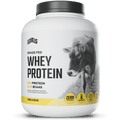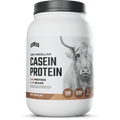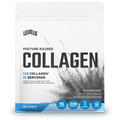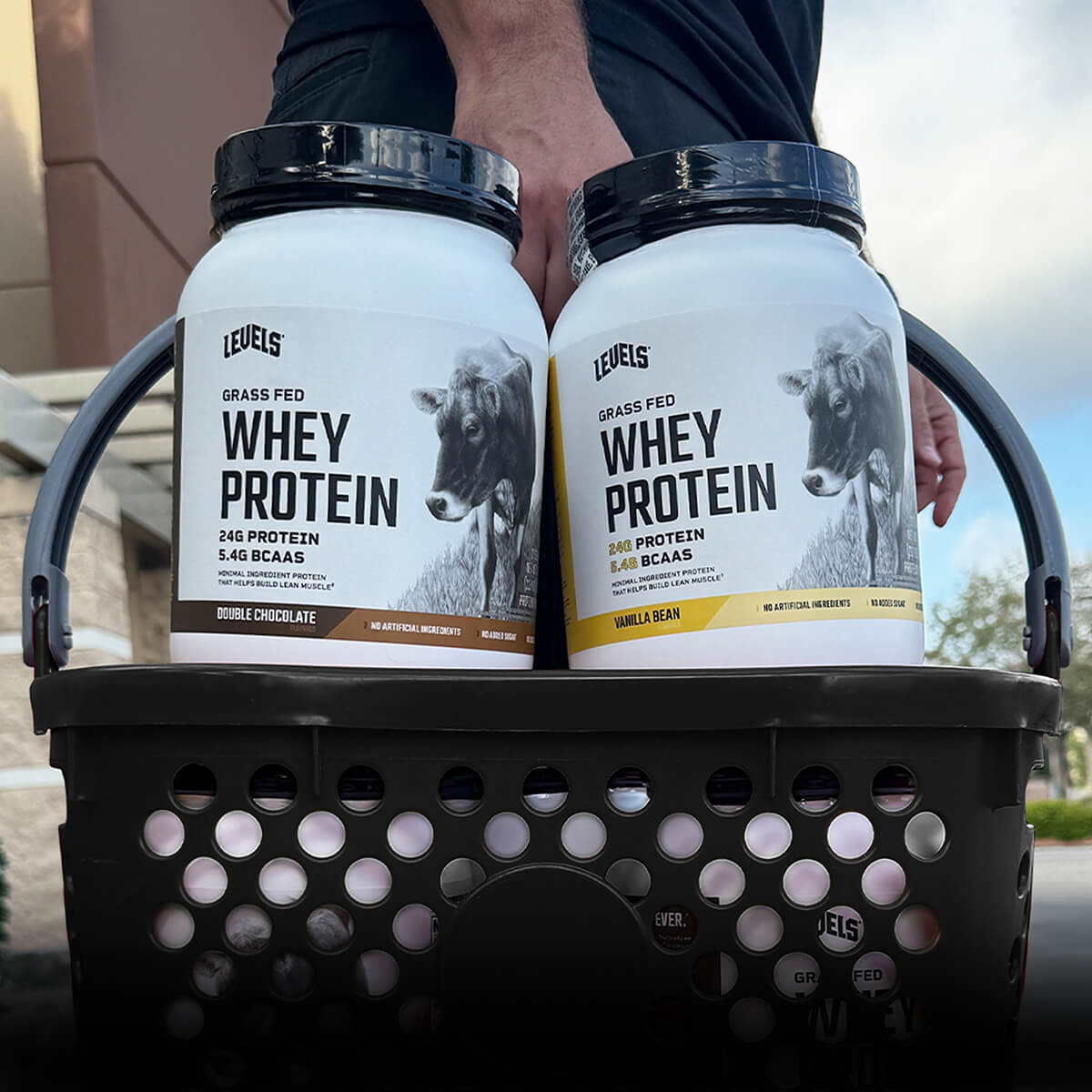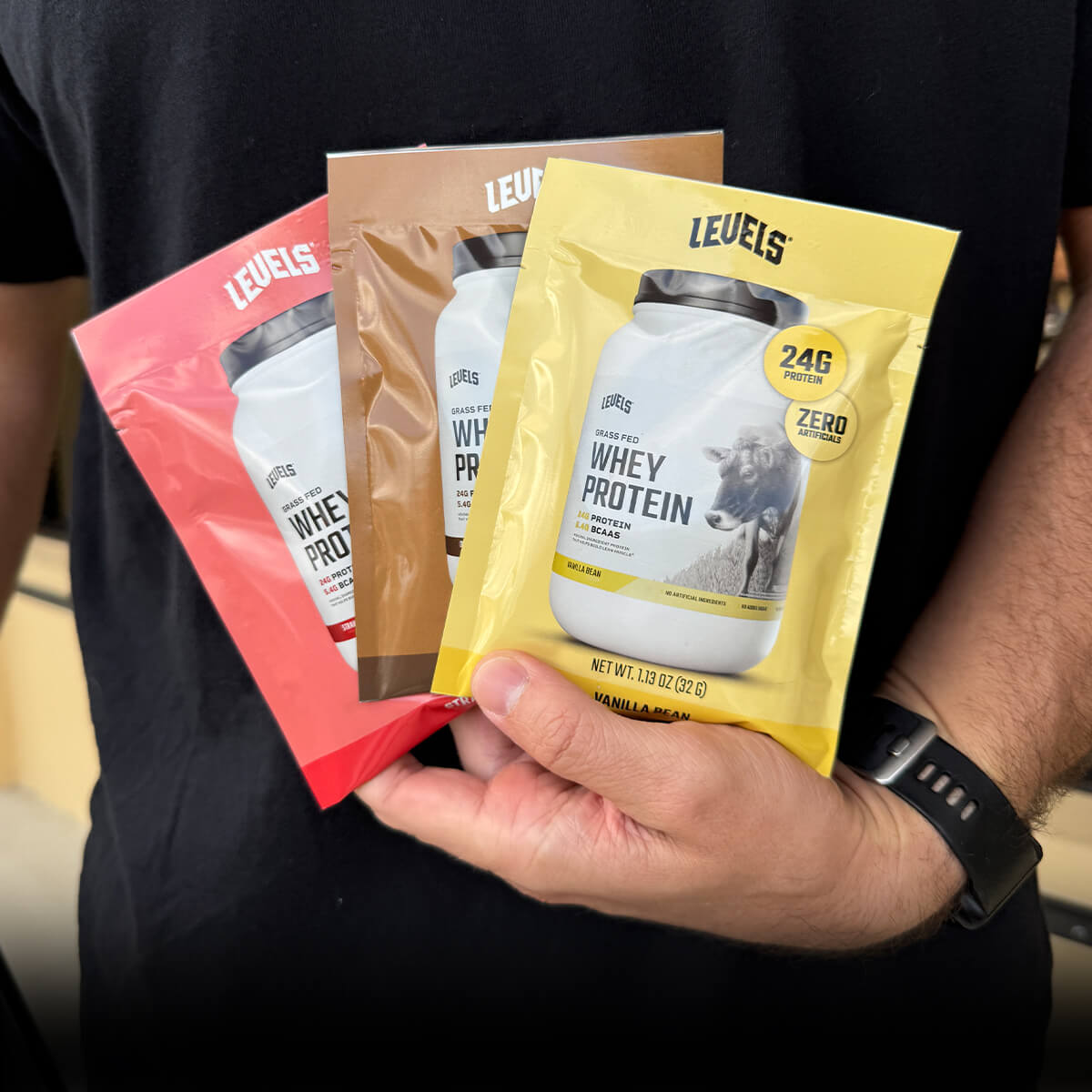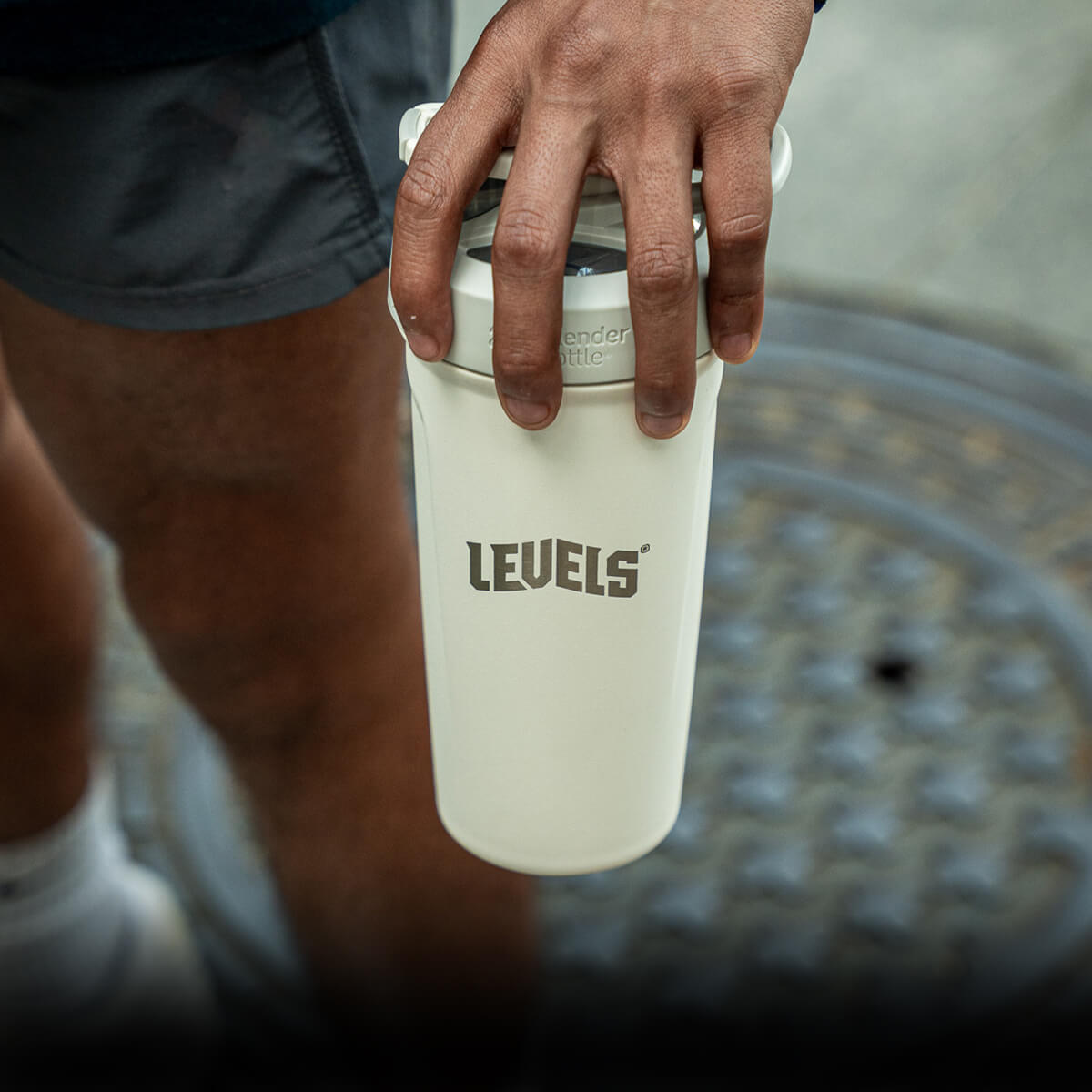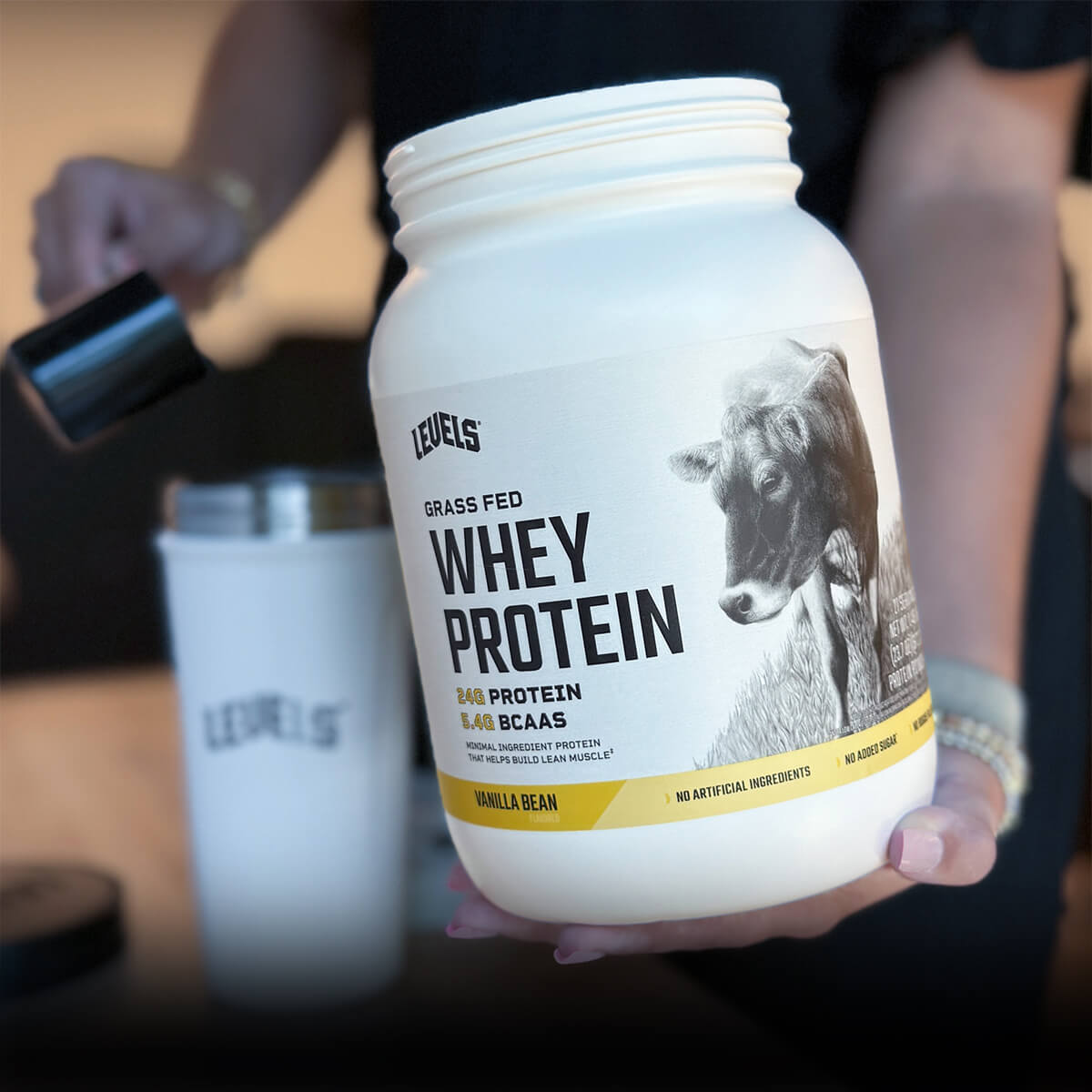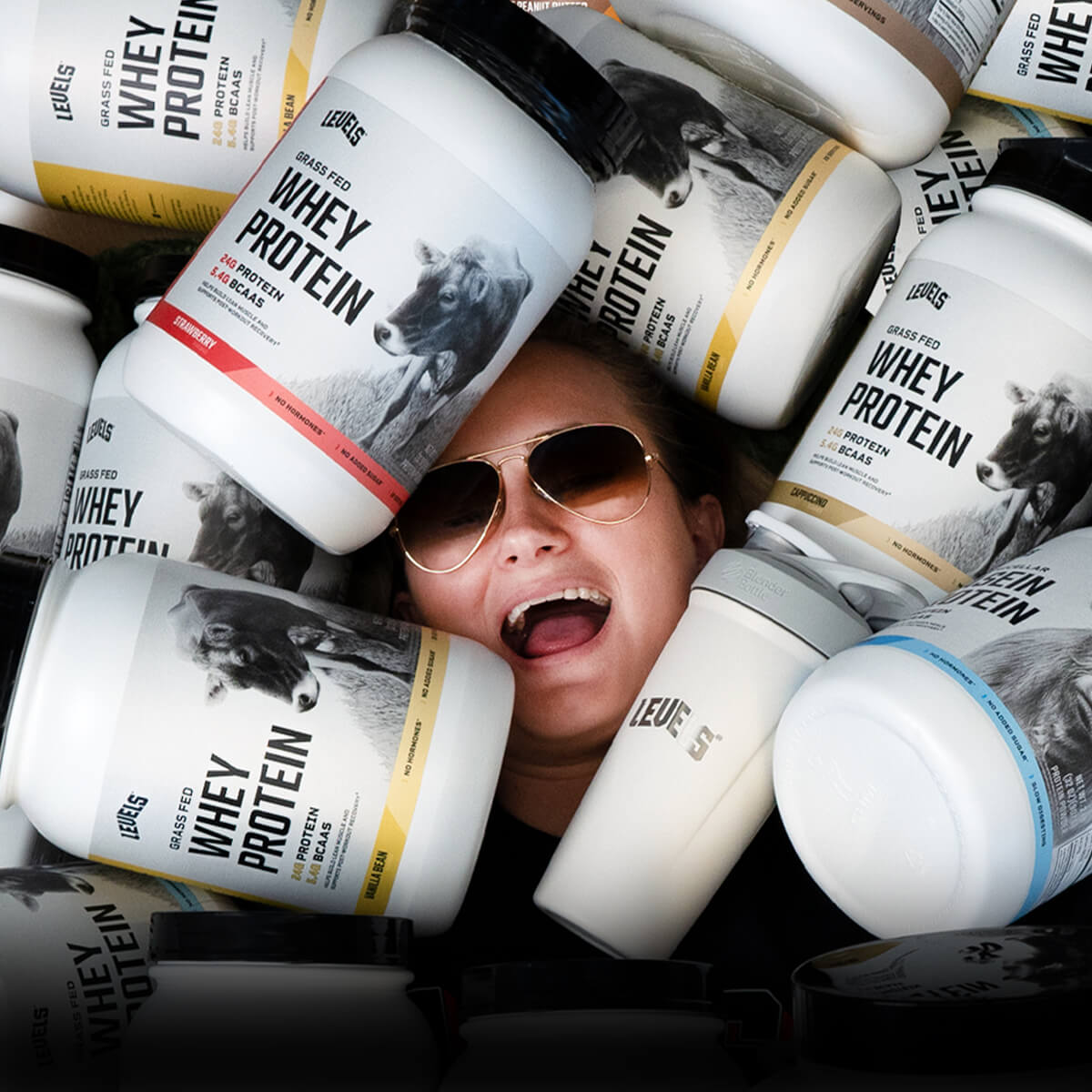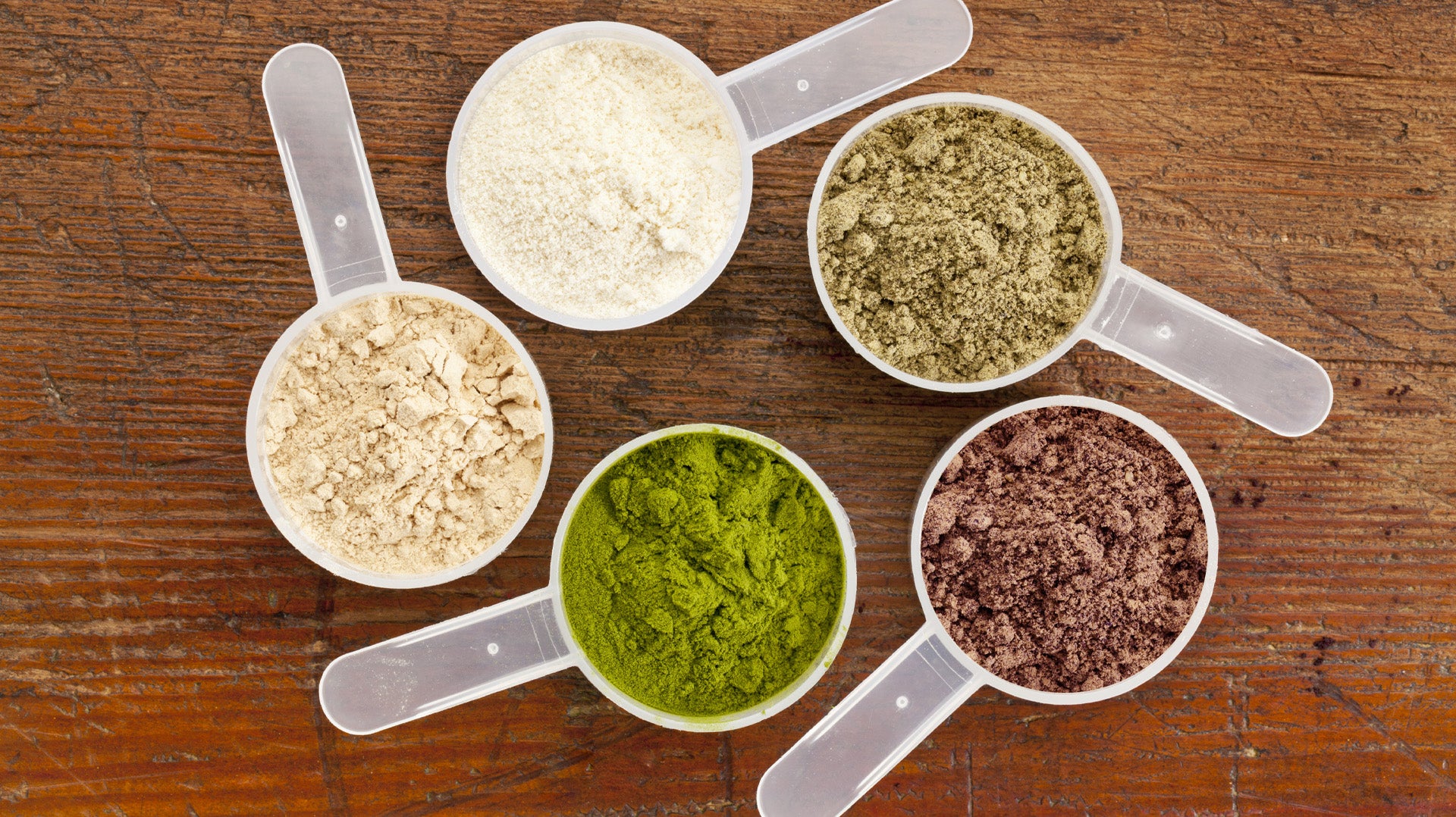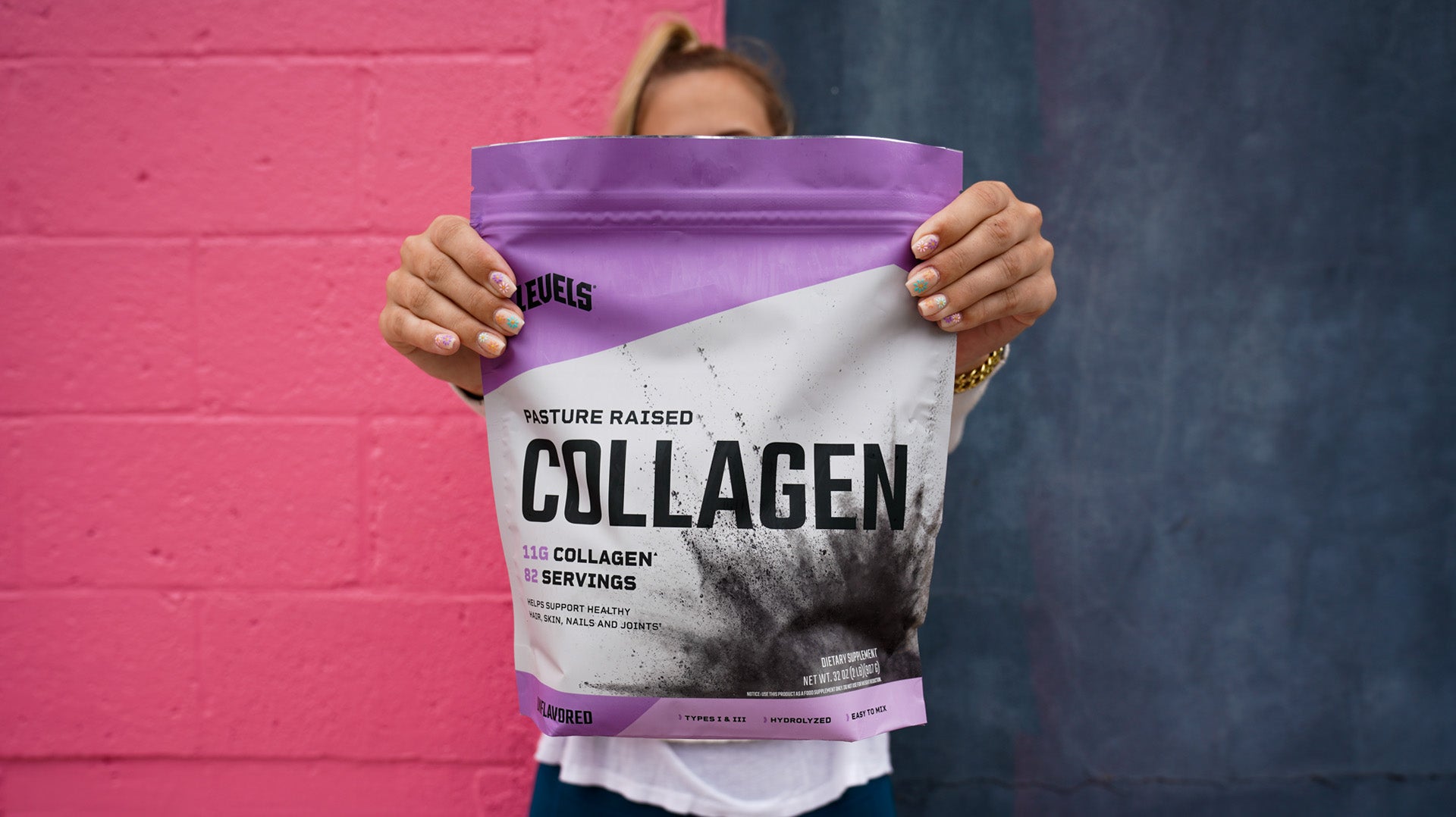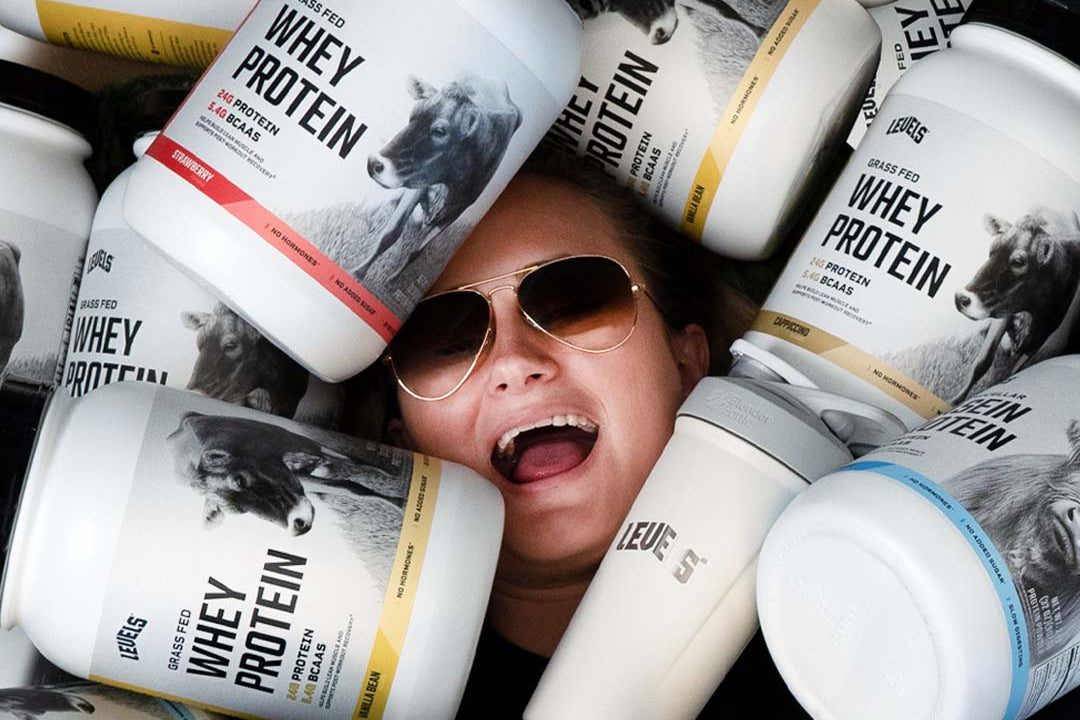The most common causes of dry skin include dehydration, an inflammatory diet, vitamin and nutrient deficiencies, and aging[*][*][*].
Sometimes, drinking more water and applying lotion aren’t effective enough to correct these underlying issues.
But according to studies, some supplements can actually help reverse dryness and irritation by hydrating skin from the inside.
Keep reading to learn the best supplements for skin hydration, how to correct the most common dietary imbalances that lead to dry skin, and other research-backed remedies for skin health.
1. Collagen Peptides
Collagen is a protein that’s high in the amino acids glycine, proline, alanine, and arginine[*].
As the most common protein in your body, it’s found in all types of connective tissue, especially skin[*][*].
And collagen peptides or hydrolyzed collagen protein are supplements made by processing collagen from animal sources into protein powder form.
According to a 2019 review and meta-analysis of 11 studies, oral collagen protein may[*]:
- increase skin hydration,
- decrease skin dryness, and
- reduce the appearance of wrinkles and skin aging.
And other studies have found it can decrease skin roughness and help support the body’s ability to protect skin from damage[*][*].
Compared to other supplements for dry skin, collagen peptides are backed by a greater amount of peer-reviewed scientific research.

If you already eat a healthy, balanced diet, hydrolyzed collagen protein is a logical first-line approach for dry skin, because it can work regardless of whether you have a vitamin deficiency or nutrient imbalance.
Hydrolyzed collagen also has other benefits for joint health, brain health, recovery, and sleep quality.
Most skin health studies use around 10 grams per day of collagen, but you can safely use higher doses up to about one-third of your daily protein intake[*].
2. Omega-3 Fatty Acids
The omega-3 fatty acids EPA and DHA are essential fatty acids, which means your body can’t make them–instead, you must obtain them through your diet.
Unfortunately, many modern diets are deficient in omega-3 fatty acids but high in inflammatory omega-6 fatty acids from processed foods[*].

An imbalance of omega-3 to omega-6 in your diet results in inflammation and other symptoms, including dry and irritated skin[*].
Some research also links omega-3 deficiency to skin conditions like eczema and psoriasis[*][*].
Fish and other seafood are the best sources of omega-3 fatty acids. The US Dietary Guidelines recommend eating at least two 4-ounce servings of fatty fish each week, for a total of 8 ounces[*].
To limit your mercury intake, the FDA advises eating smaller species that are lower on the food chain, like salmon, sardines, and shellfish[*].
You can also use omega-3 supplements like fish oil, cod liver oil, or krill oil to restore your omega-3 balance and rehydrate your skin[*].
3. Vitamins A and E
Deficiencies of vitamin A or vitamin E have been shown in studies to cause dry skin[*].
Some of the best dietary sources of vitamin A are:
And you can get more vitamin E in your diet by eating plenty of these foods:
Along with a healthy diet, you can also use vitamin supplements to ensure you obtain the recommended daily allowances (RDAs) of vitamin A (900 mcg) and vitamin E (15 mg)[*][*].
4. Probiotics
Your gut health can influence nearly every aspect of your health, including your skin health[*].
Research shows that a healthy microbiome (gut bacteria population) can help preserve your skin barrier and reduce inflammation[*].
And according to early evidence in mice and humans, probiotic foods and supplements containing the Lactobacillus plantarum can improve skin barrier function and increase skin hydration[*].
So if you’re in the market for a probiotic supplement for skin health, check to make sure it contains L. plantarum and other Lactobacilli.
However, you can also obtain L. plantarum by eating traditional fermented foods like sauerkraut, kimchi, pickles, and sourdough bread[*].
5. Hyaluronic Acid
Hyaluronic acid is a compound found in connective tissue throughout your body, including your skin.
Often described as gelatinous or "goo-like," one function of hyaluronic acid appears to be to hydrate and lubricate the epidermis to maintain skin elasticity[*].
Half a dozen promising studies have shown that doses of hyaluronic acid supplements between 35-240 mg per day may increase skin hydration and decrease the appearance of wrinkles[*].
When to See a Doctor About Dry Skin
Most of the time, dry skin is annoying but harmless.

That said, here are situations where you should talk to your physician or other trusted health care provider:
- if your skin is extremely or excessively dry or painful
- if you’ve got cracked or peeling skin on your fingers, or severely dry or chapped lips
- if you’re experiencing other symptoms besides dry skin
- if you’ve recently begun a new medication.
Sometimes, very dry skin can be a sign of an underlying medical problem, or you might have a skin condition like eczema or psoriasis that would benefit from medical attention.
Final Thoughts
At Levels, collagen protein is our top pick for a skin hydration supplement.
Collagen is backed by over a dozen studies to reduce skin dryness and improve skin appearance, and it works regardless of other dietary factors.
Even if you’ve “tried everything” for dry skin, hydrolyzed collagen supplements are an excellent, evidence-based choice to hydrate your skin from the inside and support skin health.
